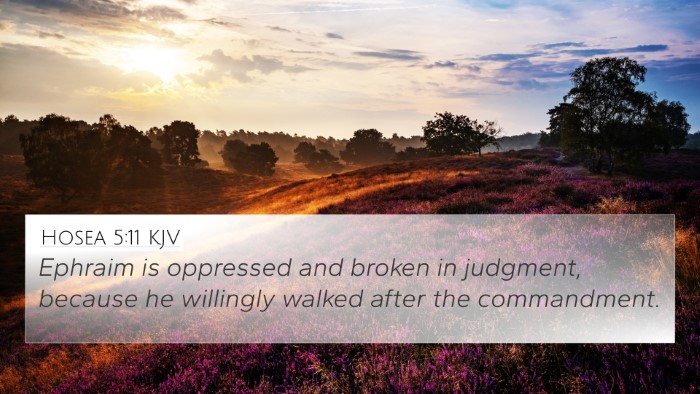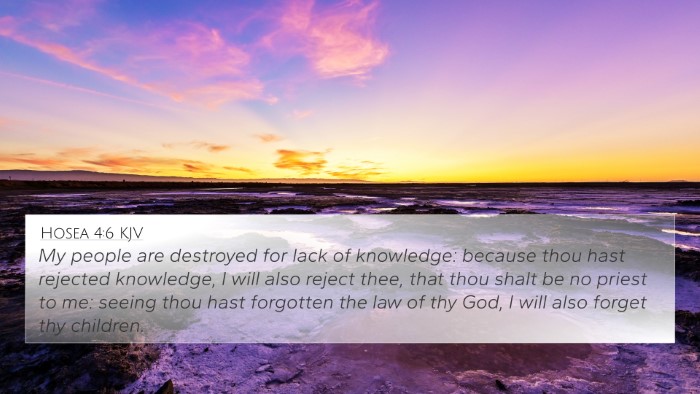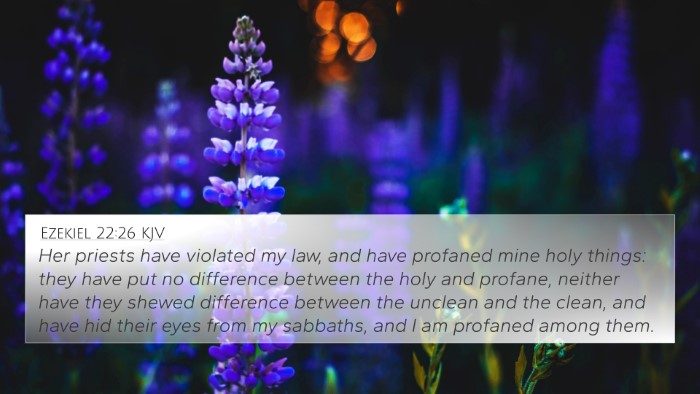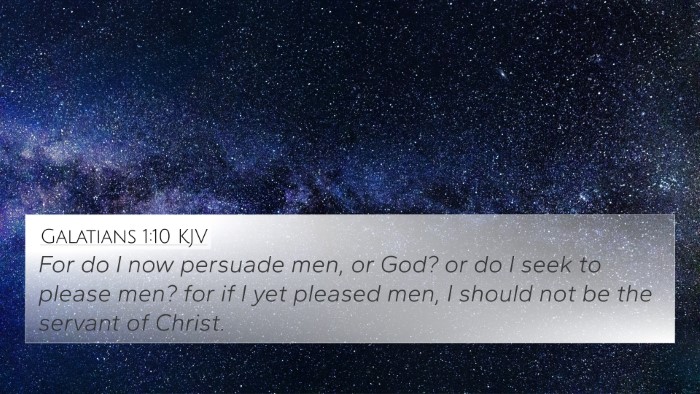Old Testament
Genesis Exodus Leviticus Numbers Deuteronomy Joshua Judges Ruth 1 Samuel 2 Samuel 1 Kings 2 Kings 1 Chronicles 2 Chronicles Ezra Nehemiah Esther Job Psalms Proverbs Ecclesiastes Song of Solomon Isaiah Jeremiah Lamentations Ezekiel Daniel Hosea Joel Amos Obadiah Jonah Micah Nahum Habakkuk Zephaniah Haggai Zechariah Malachi2 Kings 16:11 Similar Verses
2 Kings 16:11 Cross References
And Urijah the priest built an altar according to all that king Ahaz had sent from Damascus: so Urijah the priest made it against king Ahaz came from Damascus.
Uncover the Rich Themes and Topics of This Bible Verse
Listed below are the Bible themes associated with 2 Kings 16:11. We invite you to explore each theme to gain deeper insights into the Scriptures.
2 Kings 16:11 Cross Reference Verses
This section features a detailed cross-reference designed to enrich your understanding of the Scriptures. Below, you will find carefully selected verses that echo the themes and teachings related to 2 Kings 16:11 KJV. Click on any image to explore detailed analyses of related Bible verses and uncover deeper theological insights.

1 Kings 21:11 (KJV) »
And the men of his city, even the elders and the nobles who were the inhabitants in his city, did as Jezebel had sent unto them, and as it was written in the letters which she had sent unto them.

Malachi 2:7 (KJV) »
For the priest's lips should keep knowledge, and they should seek the law at his mouth: for he is the messenger of the LORD of hosts.

Hosea 5:11 (KJV) »
Ephraim is oppressed and broken in judgment, because he willingly walked after the commandment.

Hosea 4:6 (KJV) »
My people are destroyed for lack of knowledge: because thou hast rejected knowledge, I will also reject thee, that thou shalt be no priest to me: seeing thou hast forgotten the law of thy God, I will also forget thy children.

Daniel 3:7 (KJV) »
Therefore at that time, when all the people heard the sound of the cornet, flute, harp, sackbut, psaltery, and all kinds of musick, all the people, the nations, and the languages, fell down and worshipped the golden image that Nebuchadnezzar the king had set up.

Ezekiel 22:26 (KJV) »
Her priests have violated my law, and have profaned mine holy things: they have put no difference between the holy and profane, neither have they shewed difference between the unclean and the clean, and have hid their eyes from my sabbaths, and I am profaned among them.

Jeremiah 23:11 (KJV) »
For both prophet and priest are profane; yea, in my house have I found their wickedness, saith the LORD.

Isaiah 8:2 (KJV) »
And I took unto me faithful witnesses to record, Uriah the priest, and Zechariah the son of Jeberechiah.

2 Chronicles 26:17 (KJV) »
And Azariah the priest went in after him, and with him fourscore priests of the LORD, that were valiant men:

Galatians 1:10 (KJV) »
For do I now persuade men, or God? or do I seek to please men? for if I yet pleased men, I should not be the servant of Christ.
2 Kings 16:11 Verse Analysis and Similar Verses
Understanding 2 Kings 16:11
2 Kings 16:11 states: "And Urijah the priest built an altar according to all that king Ahaz had sent from Damascus: so Urijah the priest made it against king Ahaz came from Damascus." This verse highlights the actions of the priest Urijah at the command of King Ahaz, illustrating themes of obedience, idolatry, and the influence of foreign practices on Israelite worship.
Commentary Insights
This explanation will synthesize insights from prominent public domain commentaries, including those authored by Matthew Henry, Albert Barnes, and Adam Clarke.
Matthew Henry's Commentary
Matthew Henry emphasizes the spiritual degradation that King Ahaz represents. He notes that Ahaz, influenced by the idolatries he witnessed in Damascus, compelled Urijah to construct an altar that mirrored these pagan practices. Henry critiques this act as a blatant departure from Yahweh’s prescribed worship.
Albert Barnes' Commentary
Albert Barnes points out the significance of Urijah's compliance in this context. He suggests that Urijah's actions signify a tragic submission to the king’s unfaithfulness instead of adherence to the commandments of God. This indicates a concerning shift in the religious leadership, reflecting broader themes of governance intertwined with spirituality.
Adam Clarke's Commentary
Adam Clarke provides detail on the historical context surrounding the construction of the altar. He identifies the altar as a direct imitation of foreign customs and criticizes Ahaz's actions as indicative of a deeper spiritual malaise within Israel. Clarke stresses that this incident contributed to the corruption of true worship among the Israelites.
Thematic Connections
In studying 2 Kings 16:11, we can see numerous thematic connections and parallels to other passages within Scripture. Below are some key Bible cross-references that relate to this verse:
- Isaiah 7:1-2 - Contextualizes the political situation faced by Ahaz.
- 2 Chronicles 28:24-25 - Discusses Ahaz's idolatry in greater detail.
- Ezekiel 8:5-6 - Provides insight into the abominations in Jerusalem that mirror Ahaz's actions.
- Exodus 20:3-5 - Reiterates the command against idolatry, highlighting the contrast with Ahaz’s actions.
- 2 Kings 21:2 - Illustrates the continued legacy of such idolatrous practices.
- 1 Chronicles 13:3 - Describes the proper worship of God sought by earlier kings.
- Jeremiah 11:10 - Reflects on the covenant unfaithfulness associated with such actions.
- 1 Kings 12:28-30 - Discusses the creation of alternative centers of worship, linking to Ahaz’s decisions.
- Deuteronomy 12:30-31 - God's explicit warning against adopting foreign religious practices.
- Hosea 4:12 - Critiques Israel's reliance on idols, directly relating to the consequences of Ahaz's rule.
Bible Verse Cross-Reference Insights
The importance of cross-referencing Biblical texts in understanding scripture cannot be overstated. Cross-referencing allows readers to uncover thematic Bible verse connections that illuminate deeper meanings. Here’s how 2 Kings 16:11 interlinks with broader theological themes:
- Idolatry vs. Worship: The contrast between the authentic worship of Yahweh and the corrupt practices adopted from foreign nations.
- Leadership Influence: How the actions of a leader can lead a nation into spiritual decline.
- Consequence of Sin: The long-term effects of abandoning God's laws, as illustrated across multiple texts.
- Prophetic Warnings: Biblical texts, especially from prophets, serve as admonitions against following in Ahaz's footsteps.
Tools for Bible Cross-Referencing
To enhance Bible study, utilizing tools for cross-referencing provides valuable resources. Here are some effective strategies:
- Bible Concordance: A reference tool that lists words and phrases found within the Bible, facilitating easier searches for thematic inquiries.
- Bible Cross-Reference Guide: A compilation of relevant verses that support study themes.
- Cross-reference Bible Study: Engaging in organized study sessions that focus on themes found throughout scripture.
- Comprehensive Bible Cross-Reference Materials: Using printed and digital resources that catalog scriptures by themes or subjects.
Conclusion
Understanding 2 Kings 16:11 through the lens of comprehensive commentary and cross-referencing enriches the interpretation of the scripture. By recognizing Ahaz’s failure and Urijah's complicity, we uncover lessons about leadership, spiritual fidelity, and the importance of adhering to divine guidelines over cultural pressures. This scripture prompts us to connect the dots between the past and present, relationally and theologically, urging further study and reflection on our own paths of faith.


